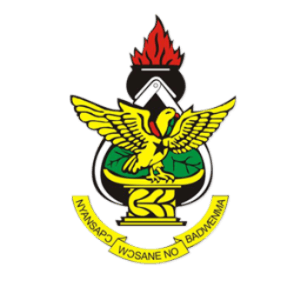KNUST to recycle plastic wastes for industrial purposes
 The Kwame Nkrumah University of Science and Technology (KNUST), is set to mobilise and recycle the plastic waste of Ayeduase, a community within the University for industrial purposes.
The Kwame Nkrumah University of Science and Technology (KNUST), is set to mobilise and recycle the plastic waste of Ayeduase, a community within the University for industrial purposes.
The University has therefore donated 50 customised waste bins categorised into organic and plastic wastes to the community.
Professor Elis Owusu Dabo, the Pro Vice-Chancellor, KNUST, at a community engagement at Ayeduase, said plastic pollution altered habitats and natural processes, reducing ecosystems’ ability to adapt to climate change, which affect millions of people and their livelihoods.
He indicated that the impacts of plastic debris on marine systems included ingestion, suffocation, and entanglement of hundreds of marine species such as seabirds, whales, fishes, and turtles.
Since plastics were non-biodegradable, it was important to recycle them to free the environment and other living organisms who could be exposed to effects of their pollution, he explained.
Prof. Dabo said the KNUST, had established a company on campus about a year ago to recycle plastic waste, and it was important to bring in the waste of peripheral communities for recycling to increase the tonnage of its production.
He said the University would subsequently hook in all other communities around the Bomso, Ahinsan, Gyinyase, and Ayigya, to the plastic recycling course to reduce pollution from plastics in these areas.
The Pro VC said the University would continue working with communities to ensure clean and healthy environments, which were of great importance to the institution.
“All the communities around us are of great importance to us, they are part of our sustenance as a university because most of our students live in the hostels in these areas and we cannot leave them behind,” he assured.
Apart from the plastic recycling, the KNUST also aimed to provide about 150 street light bulbs to enhance security and improve general sanitation conditions at Ayeduase.
Nana Opoku Bawuah Agyemang Bonsafo III, the Chief of Ayeduase, commended KNUST for the close partnerships with communities over the years.
He implored all residents of the area to embrace the exercise by the University and warned that the provision of waste bins did not mean people should discharge their households’ refuse into them, explaining that the branded bins were for segregation of plastic waste.
Prof. Paul Sarfo-Mensah, Head, Bureau of Integrated Rural Development, the lead research department for the plastic recycling, called for the maximum participation of the community to ensure success.
Source: GNA

This is a good initiative…we are open for partnership in Nigeria to also replicate same on our campuses across the country